Winter Science Investigation – Why Ice the Roads?
With temperatures falling as we head into winter it’s time to do a fun and simple science investigation with the kids on why we grit the roads. This simple winter experiment for kids will help them understand a little more about what happens when salt is added to the roads before night falls and what effect it has on the frost and ice that forms overnight. So here we go a fun Winter Science Investigation to explore why grit the roads.
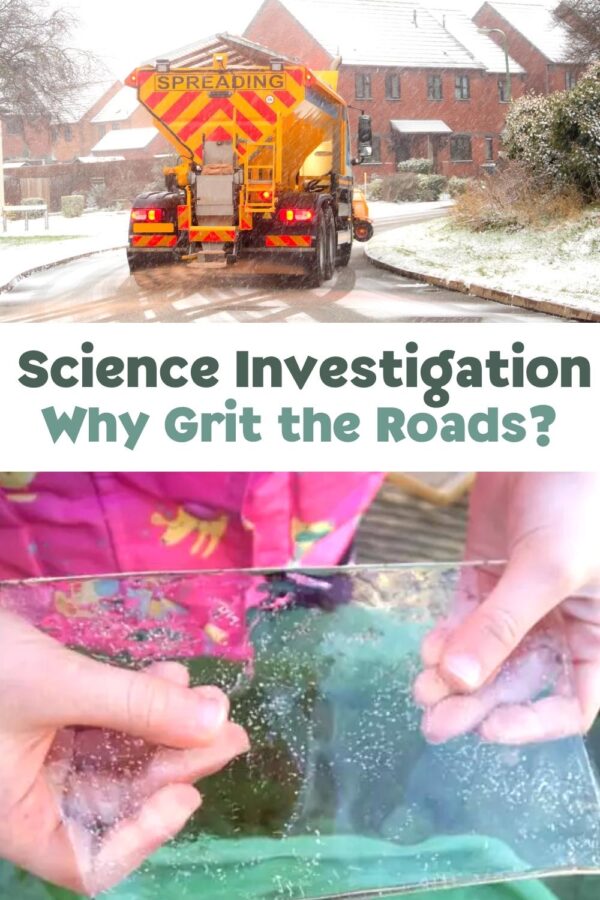
Winter Science
Winter is the perfect time to explore some chemistry and states of matter. You can look at freezing and melting easily but how about some of the factors that can reduce the temperature or increase the temperature when these things happen as well.
This simple experiment explores how we can reduce the temperature of freezing with the kids and the effect of using grit or salt on the roads in a fun and simple way.
Looking for more science for kids check out these fantastic ideas for Science Experiments and Investigations for tots to teens.
Why is Salt Used in Winter on the Roads?
So that you can help your child draw some conclusions it’s worth understanding what is happening when salt is used on roads prior to snow or frost forming.
The science is really simple – salt lowers the freezing point of water from 0 degrees to below freezing (this is also why there is still water in the Arctic and the Antarctic even in the middle of winter as the sea is salty) so by gritting the roads and pathways, with salt, frost and snow that land on it or try and form will only do so at a much lower temperature than they would otherwise.
In this Winter Science Investigation, we look at 2 different ideas – freezing icy water and what happens when salt is applied to already frozen water.
Materials Needed for this Winter Science Investigation
We have included affiliate links to products and resources we used and recommend for this activity.
Some Ice
Camera or smartphone – these are the cameras that we have purchased for our kids to use they are fairly sturdy but provide a much better image and video than the kids cameras that you can buy.
Why not download our Winter Science Prompts and Investigation sheet here
Winter Science Investigation 1 – Lowering the Freezing Point of water
Using our water table we set up this over two different nights when we knew that the temperature would drop. You could use a container of water as well make sure that the night is one where the temperature will just drop below freezing.
If you live in a warm climate you could do this in your freezer as well but with careful timing to make sure that both the none salty and salty water have the same amount of freezing time and the same temperature.
Start off by leaving out the container with fresh water overnight.
In the morning explore the ice to see how it’s frozen – look at the thickness of it, how much of the water table it has covered.
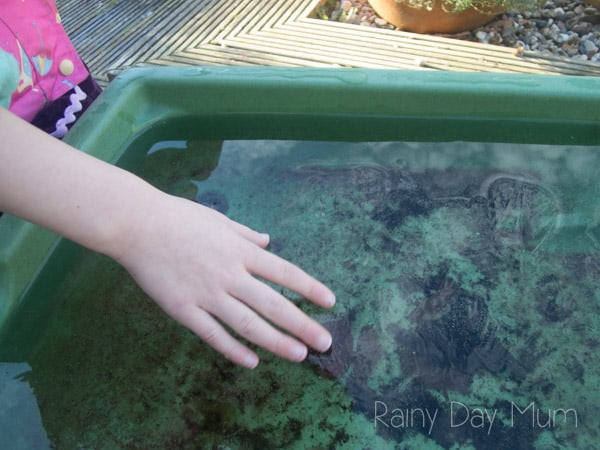
You and your child could photograph the ice and them touching it and exploring it.
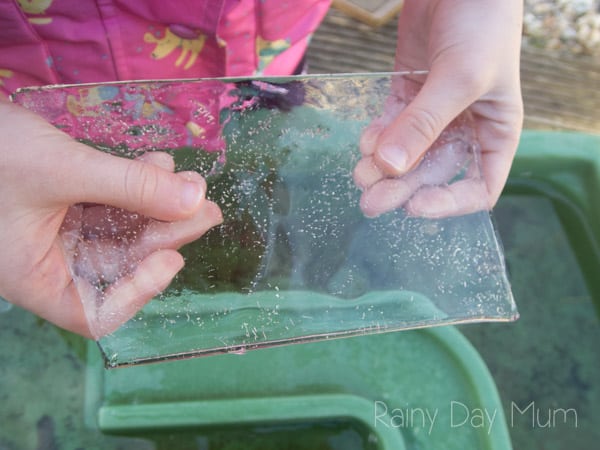
Now fill up your water table again and this time add in a cup or two of salt and help it dissolve by stirring.
Leave overnight again.
The following morning again look at the ice – has it frozen, is it as thick – use pictures that you took from the previous experiment to compare.
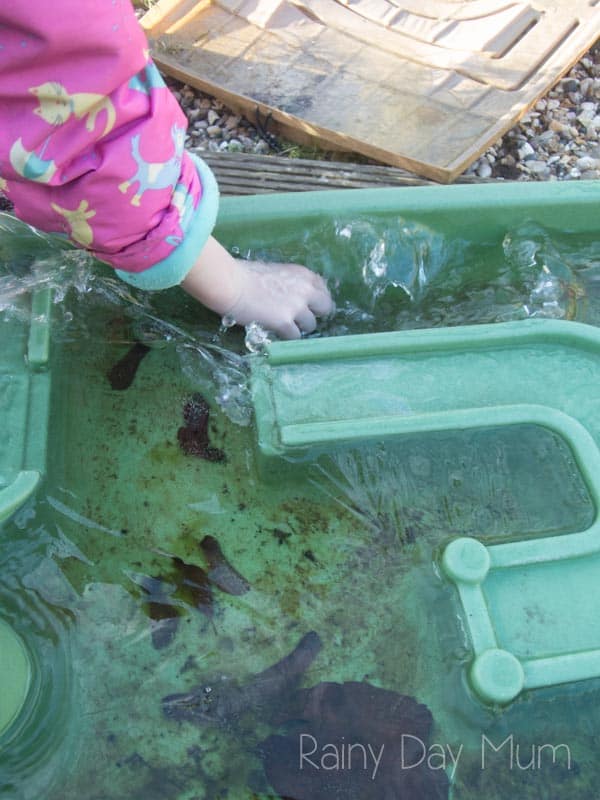
Talk to you child about why they think that there is a difference, what does the salt do? If there wasn’t a difference what other factors could have changed?
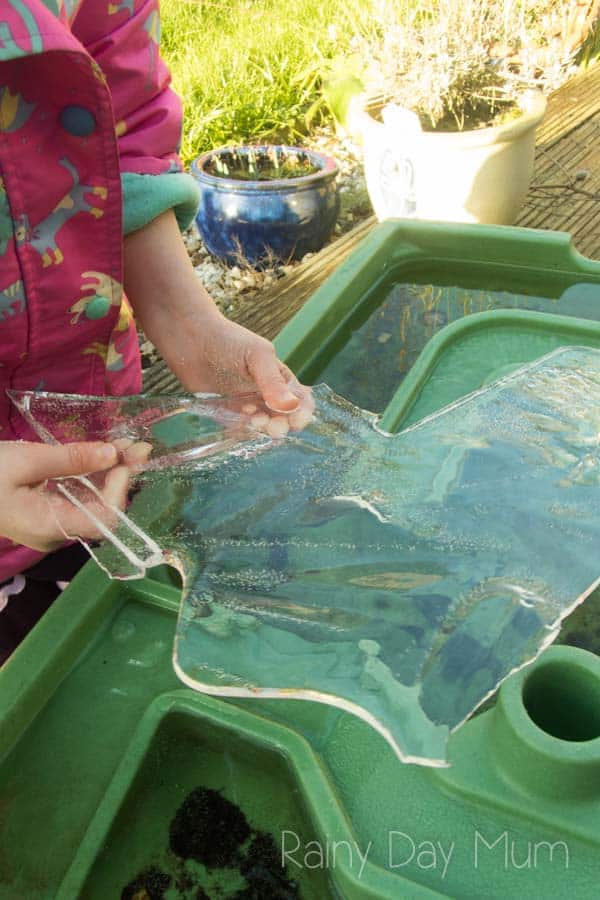
Winter Science Investigation 2 – Salting on ice
This was a favorite of both J and T they both loved see what happens and helped them understand why even when ice and snow has fallen during the day the roads are still gritted and salt applied to paths.
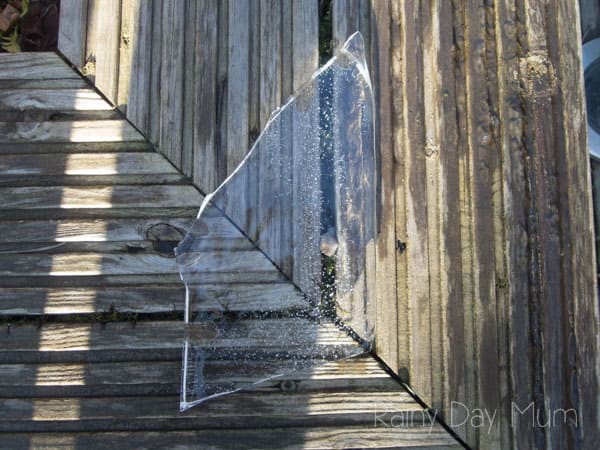
With some ice – you can freeze this in the freezer if it’s not cold enough where you are take a lid and add some water onto it and then place in the freezer so you have a sheet of ice.
WARNING – If your child wishes to touch the ice with the salt on please make sure that they are wearing gloves you can get freeze burns without care being taken.
Now sprinkle ice onto the surface and watch.
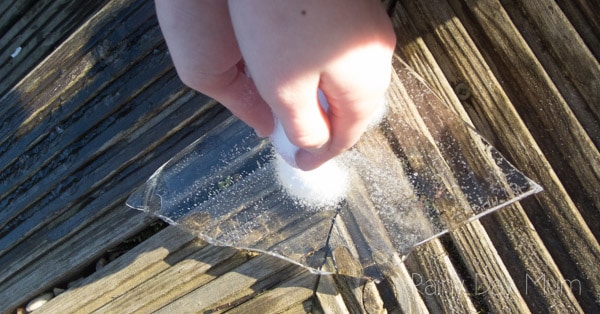
T videoed what was happened and then we spent time thinking about and explaining what was happening and causing the noises.


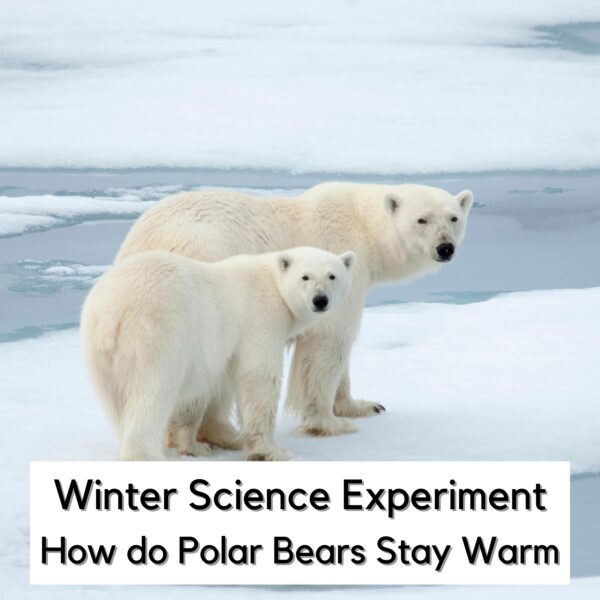
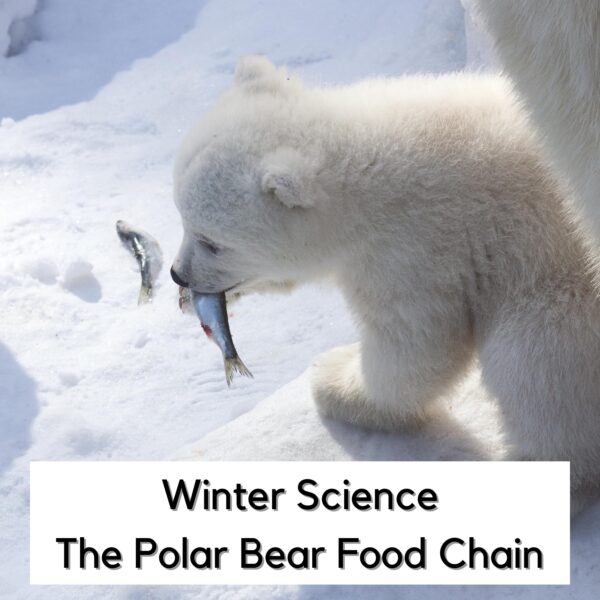
Another related science lesson could be what makes fog. Freezing fog is even more interesting.